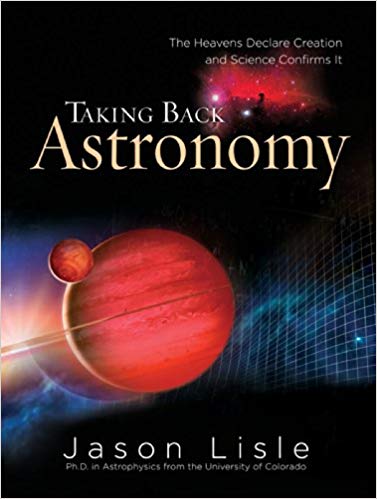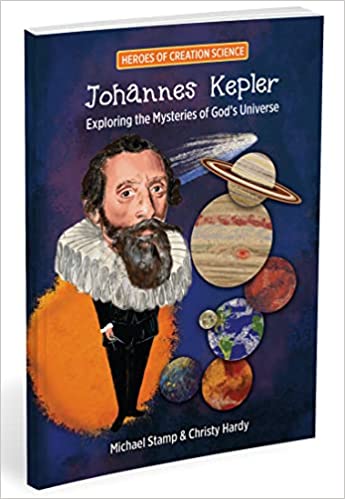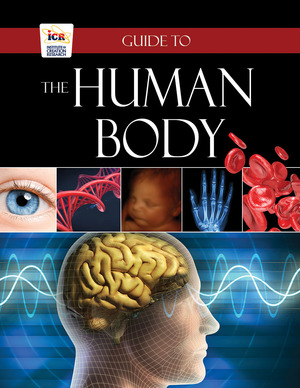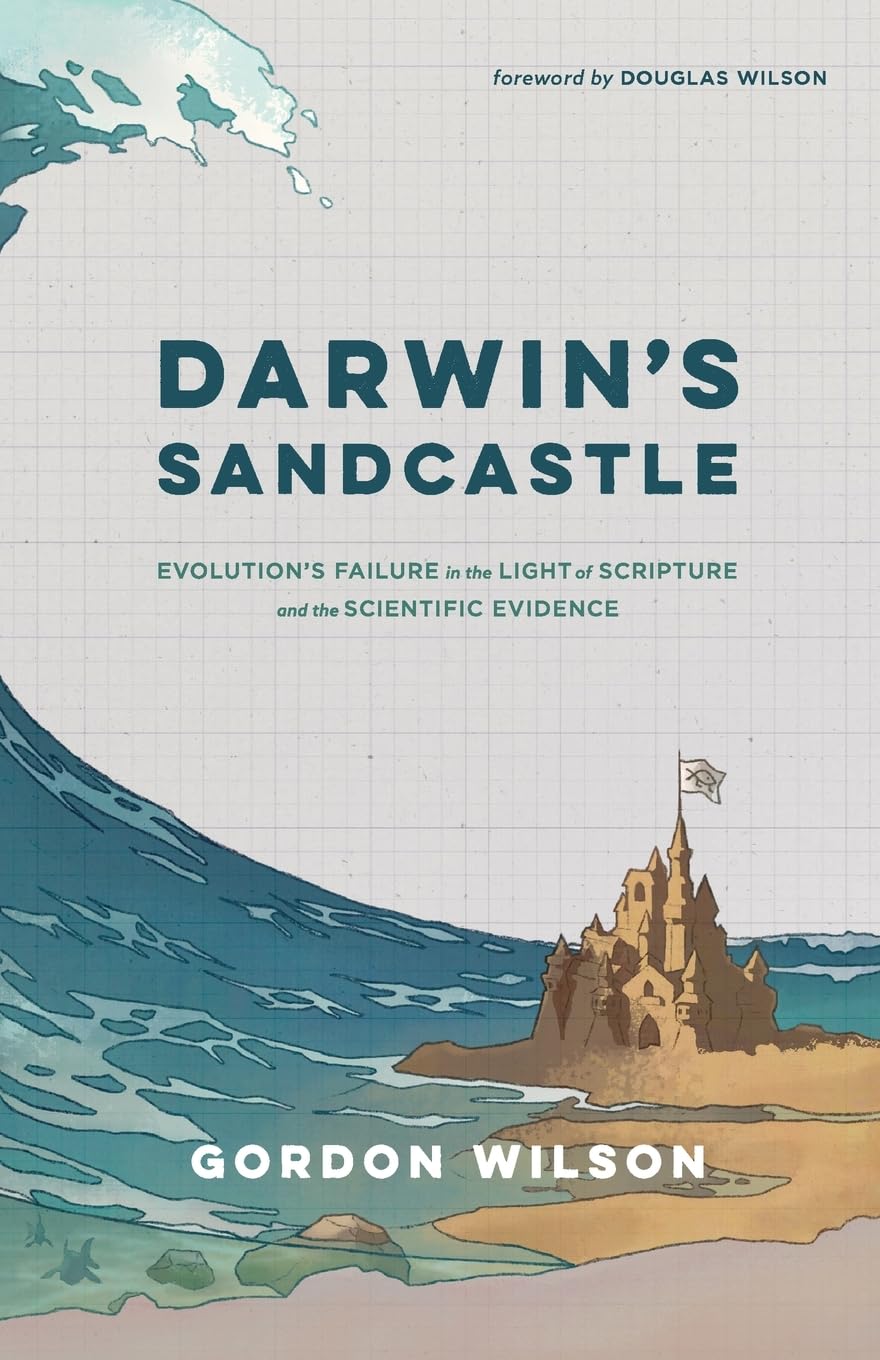Intelligent design, and indirectly the creation model, have been in the news a lot lately. Not surprisingly, most of the articles have been sympathetic, not to intelligent design, but to Darwinian evolution, the mechanistic explanation for life so favoured by the majority of scientists.
Despite the sympathetic treatment, the majority of scientists are actually embarrassed by all this attention to evolution, since this implies that there is some doubt about its validity. The response of the establishment scientists has been to deny the obvious. They insist that there is no controversy about Darwinian evolution among trained scientists.
For example, a news item in Nature declared: ” scientists should highlight that there is no dissent over evolution within the scientific community and that if intelligent design had scientific merit, it would have been addressed by the vigorous and open scientific process.” (August 11, 2005 vol. 436 p. 761). Of course such statements notwithstanding, there is controversy among scientists over the validity of Darwinism. The very fact that some scientists feel themselves forced to make these disclaimers, clearly indicates that there is disagreement over this issue.
It was President Bush’s reluctant support for intelligent design, which elicited the recent flurry of responses in the media. What the President actually said was: “I’m not suggesting you’re asking me whether or not people ought to be exposed to different ideas, and the answer is yes.” The President did not specifically mention intelligent design. Nevertheless many scientists saw in this remark, a threat to their position. The President’s remarks were made at an informal news conference on August 1, 2005. By August 11, the scientific journal Nature had hustled into their next issue (the one for August 4 was no doubt already printed), with a news item entitled “Scientists attack Bush over intelligent design” (p. 761) and an editorial “Keeping religion out of science class” (p. 753). The subheading to the editorial declared that scientists were well positioned to prevail over the President’s views and over intelligent design.
The issue, as the majority of scientists see it, concerns the definition of science. Influential scientists consider that intelligent design, as well as the creation model, constitute challenges to their core definition of science. It is the view of the majority of scientists that all natural phenomena can be explained in terms of processes working on matter, without reference to supernatural beings or events. This definition is called “methodological naturalism”. According to that definition, scientists expect to see only matter and processes, and these are all that they will allow in their explanations of nature.
Intelligent design scientists beg to differ with the majority view. ID supporters, for their part, declare that there are phenomena in nature which can never be explained solely in terms of matter and processes. Some phenomena could never happen spontaneously no matter how much time is allowed. Such phenomena could only have been designed by an intelligent being (obviously beyond or apart from nature).
The creation model goes farther than intelligent design. These scientists understand that Scripture and nature both testify to the work of God, the Creator. Neither nature nor Scripture contradicts the other. Creationists therefore expect to find God’s signature (evidence of His creative work) in all of nature. Also, since all things were created within the space of six days, it is evident that lengthy processes were neither required nor used in the creation event.
Secular scientists see appeals to intelligence or the supernatural in explanations of nature as a threat to the very definition of science (their definition). For example, theoretical physicist Lawrence Krauss was quoted in Nature as remarking: “Make no mistake, this is not an attack on evolution, but on science.” (Aug. 11/05 p. 761). An official with the American Association for the Advancement of Science likewise declared: “Evolution is not the only issue at stake. The very definition of science is at stake.” (New York Times June 21/05). The objective of such individuals is to protect their right to define what is and what is not science, and their right to declare what science tells us and what it does not tell us.
Statements such as “no serious scientist supports”, or “the majority of scientists believes…” are arguments from authority. Thus secular scientists hope to avoid discussions on the actual evidence from nature upon which intelligent design and creation scientists base their arguments. The mere dismissing of evidence as “religion”, or “not science”, however does not make that evidence disappear, as many people with open minds are discovering, hence the controversy that won’t go away.
As far as the evidence is concerned, the issues discussed by the creation model and intelligent design, tend to be the same. The most popular issues include:
- origin of life theories don’t work (e.g. Stephen Meyer for intelligent design and the late A. E. Wilder-Smith for creation)
- information content of DNA (e.g. Stephen Meyer for ID and Werner Gitt for creation)
- design, or irreducible complexity, or planning and purpose (e.g. Michael Behe for ID and most creationists)
- Cambrian explosion (e.g. ID team and Dwayne Gish for creation)
- natural selection does not explain differences in body plans of living organisms (e.g. Phillip Johnson for ID and Gary Parker for creation)
A major difference between intelligent design and creation is that the scientists advocating the former view do not advance any explanation for the phenomena which they discuss. This is partly because no consensus position exists among ID supporters and partly for political reasons. These people are anxious (reasonably enough) to have their material evaluated on its scientific merits. However anything which is labeled “religion” in the United States is immediately ignored in scientific circles, and furthermore it is considered illegal for inclusion in public school curricula. Apparently as a result of past decisions by the Supreme Court in the United States, it is illegal to present any material in the public schools which is connected even remotely with a religious objective. Intelligent design advocates wish to avoid that pitfall. Some ID supporters even make very disparaging comments about creationists in an attempt to distance themselves from any religious stigma.
Creation-based scientists, on the other hand, always make clear that God is the instigator and sustainer of all nature. The creationist interpretive framework is always based on the historical record found in Scripture. This does not mean that creation-based interpretations are obvious; arguments such as catastrophic plate tectonics and discussions of radiometric dating are complex and have involved a number of scientists working for many years.
Thus creation-based scientists advance religious explanations for origins while intelligent design scientists advance no explanation. As far as the creation-based scientist is concerned, that nature testifies to the glory of God, is undeniable. The intelligent design approach, for its part, arose from the discoveries of people who drew somewhat similar conclusions, but who had no expectation to do so. The value of intelligent design, as far as creationists are concerned, lies in the excellent quality of their discussions of nature. Moreover ID calls attention to the evidence in a broader public forum than most creation model supporters are able to manage today.
Margaret Helder
December 2005
Subscribe to Dialogue







